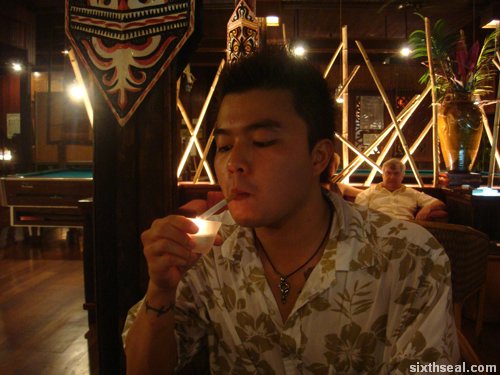 First published: March 14, 2010
First published: March 14, 2010
Source: New York Times
The Bloomberg administration is moving closer to shutting one of the largest and busiest nightclubs in the city, as part of an aggressive new strategy to revoke the operating licenses of clubs that health officials believe promote smoking.
The nightclub, the M2 UltraLounge on West 28th Street in Manhattan, went on trial last week at a special administrative court that the city uses when it seeks to take away property. If the case against the club succeeds, it would be the first time the city had closed a business solely for flouting a ban on smoking.
City officials have also moved to take several other clubs before the court, seeking to revoke their food and beverage licenses. It has been an open secret for years among the late-night set that there is a network of so-called smoke-easies throughout the city, from little neighborhood dives to glossy, exclusive boîtes, that let patrons smoke illegally.
Health department officials say that the vast majority of businesses comply with the 2002 law forbidding smoking in clubs and bars, but that inspectors have struggled to enforce it at a handful of high-end places that seem to market themselves as smoker-friendly, some even offering loose cigarettes for sale.
Generally, health officials have looked for signs of active tobacco use as part of their inspections concerning other rules, like those for food safety, and have cited clubs for violations that often result in fines of $200 to $2,000.
But they have had difficulty gaining access to the clubs when patrons are actually smoking.
“Some of the clubs where smoking is going on tend to be very, very cool clubs, and a bunch of guys showing up in jackets tend to be very, very uncool,” said Thomas Merrill, general counsel for the health department.
So in recent months, the department has deputized a team of inspectors — many of them younger and hipper-looking than the stereotypical bureaucrat — to work into the wee hours, posing as patrons and hunting for tolerance of smoking by clubs’ employees.
Because the inspectors found many instances of patrons smoking without being asked to stop, the department petitioned the administrative court, the Office of Administrative Trials and Hearings, known as OATH, to recommend revoking the food and beverage licenses of 16 bars and clubs.
“We found places with repeated nights of smoking, with sort of flagrant violations — selling cigarettes, clearly creating an atmosphere in which smoking appeared to be tolerated or even welcomed,” said Daniel Kass, the acting deputy commissioner for environmental health. “Those places are clearly not responding to the idea that we’re going to fine them periodically for violations.”
Five of the clubs have settled with the city, typically agreeing to devise a plan for correction and to pay for any violations, health officials said.
In all but one of the cases, if inspectors find indications of continued smoking during the next year, they can immediately shut the club down and bring it to trial.
Two clubs closed for other reasons, and most of the rest, including the downtown spots Lit Lounge, the Box, Tenjune and Southside, are weighing possible settlements against a looming trial date, city officials said.
The M2 case has gone the furthest. The administrative law judge hearing the case, Alessandra F. Zorgniotti, will make a ruling that will serve as a recommendation to the health commissioner, Dr. Thomas A. Farley.
In the trial, which could end as early as Thursday, the city has introduced photos of people with cigarette packs on their tables or with burning cigarettes held aloft on the dance floor.
One inspector testified that a bouncer told her she could smoke in a back area near an exit door; another said he was able to buy a loose cigarette for $2 from a collection of items for sale in the men’s bathroom.
But lawyers for the club say the city’s case is flawed, arguing that the undercover inspectors could not know whether the staff had tried to get patrons to stop smoking. The club, which has been under new management since July, submitted reports showing that bouncers had ejected at least two patrons for smoking, and Robert Bookman, a lawyer representing M2, said it had fired the two employees who had been selling loose cigarettes in the bathroom.
“The law is being misconstrued by the health department purposely to make it sound like it’s an automatic violation for a club having a patron smoking on their premises,” Mr. Bookman said. “All the law says is that we have to make a good-faith effort to inform patrons that they were breaking the law, and not with a nod and a wink.”
He added that investigators had found only a few smokers on each of their visits to the club, which can hold thousands of people. “Not only do the numbers bear out that this is not a smoking lair,” he said, “but it shows that they are in fact doing what they’re supposed to do.”
Mr. Bookman also criticized the city for not going after the smokers themselves, saying that officials were accusing employees of doing what the inspectors do when they see smoking, “which is not doing anything.”
Health officials contend that their obligation is to ensure that the clubs they license follow the law, and that cracking down on the clubs is a more effective deterrent. “The entity is the repeat offender,” Mr. Kass said. “On any given night there might be one person, or 2 people or 10 people or even way more than that, who on their own are welcomed to smoke or allowed to smoke, but they’re not necessarily back the next night.”
Written by Diane Cardwell